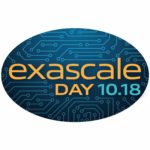The DOE’s national laboratories will be showcased at SC19 next week in Denver, CO. “Computational scientists from DOE laboratories have been involved in the conference since it began in 1988 and this year’s event is no different. Experts from the 17 national laboratories will be sharing a booth featuring speakers, presentations, demonstrations, discussions, and simulations. DOE booth #925 will also feature a display of high performance computing artifacts from past, present and future systems. Lab experts will also contribute to the SC19 conference program by leading tutorials, presenting technical papers, speaking at workshops, leading birds-of-a-feather discussions, and sharing ideas in panel discussions.”
HP-CAST Returns to Denver for SC19
Hewlett Packard Enterprise has posted the preliminary agenda for their HP-CAST user group meeting. The event takes place Nov. 15-16 in Denver, right before SC19. “The High Performance Consortium for Advanced Scientific and Technical (HP-CAST) computing works to increase the capabilities of innovative HPE solutions for HPC and AI. HP-CAST provides guidance to Hewlett Packard Enterprise on the essential development and support issues for such systems.”
First Annual Exascale Day on 10/18 to Celebrate Supercomputing Discoveries
“Exascale Day celebrates the scientists and researchers who make breakthrough discoveries with the help of some of the fastest supercomputers in the world. Exascale Day celebrates those who keep asking what if, why not, and what’s next — with the advanced technology to attain the answers. The founding organizations have established National Exascale Day as a registered holiday to be celebrated annually on October 18 (1018).”
Video: Managing HPC Software Complexity with Spack
Greg Becker from LLNL gave this talk at the MVAPICH User Group. “Spack is an open-source package manager for HPC. This presentation will give an overview of Spack, including recent developments and a number of items on the near-term roadmap. We will focus on Spack features relevant to the MVAPICH community; these include Spack’s virtual package abstraction, which is used for API-compatible libraries including MPI implementations, package level compiler wrappers, and packages which modify other package’s build environments.”
Cray Shasta Software to Power Exascale Era
Today Cray a new, open and extensible software platform to address the growing need for supercomputing across government and private industries. As advanced simulation, artificial intelligence (AI) and digital transformation create new, data intensive workloads, the need for performance at scale is growing rapidly. Recognizing the challenges presented by the exascale era, Cray’s software fuses supercomputing performance and capability with the modularity, composability and ease-of-use of cloud computing.
Cray to Build El Capitan Exascale Supercomputer at LLNL
Today the Department of Energy announced that Cray will build the NNSA’s first exascale supercomputer, “El Capitan.” To be hosted at LLNL, El Capitan will have a peak performance of more than 1.5 exaflops and an anticipated delivery in late 2022. El Capitan will be DOE’s third exascale-class supercomputer, following Argonne National Laboratory’s “Aurora” and Oak Ridge National Laboratory’s “Frontier” system. All three DOE exascale supercomputers will be built by Cray utilizing their Shasta architecture, Slingshot interconnect and new software platform.
Video: HPC at CASC
CASC serves as LLNL’s window to the broader computer science, computational physics, applied mathematics, and data science research communities. In collaboration with academic, industrial, and other government laboratory partners, investigators conduct world-class scientific research and development on problems critical to national security. CASC applies the power of high-performance computing (HPC) and the efficiency of modern computational methods to the realms of stockpile stewardship, cyber and energy security, and knowledge discovery for intelligence applications.
Registration Opens for September HPC User Forum at Argonne
Registration is now open for the HPC User Forum at Argonne National Lab. “Our global steering committee representing leading HPC centers has worked with Hyperion Research to provide a powerful agenda representing key trends at the forefront of government, academic and private sector HPC use around the world. You’ll hear about recent developments in the exascale race, architectures, HPDA-AI, smart cities, cloud computing, industrial-commercial HPC and other important topics.”
Supercomputing Asteroid Impacts for Planetary Defenses
In support of NASA’s Planetary Defense Coordination Office, researchers are creating 3-D models and using one of NASA’s most powerful supercomputers to produce simulations of hypothetical asteroid impact scenarios. “Asteroid impacts are one of the only natural disasters we can actually predict and then take action to protect people,” said Michael Aftosmis, an aerospace engineer who leads the ATAP blast wave and ground damage modeling work at NAS.
AMD Powers Corona Cluster for HPC Analytics at Livermore
Lawrence Livermore National Lab has deployed a 170-node HPC cluster from Penguin Computing. Based on AMD EPYC processors and Radeon Instinct GPUs, the new Corona cluster will be used to support the NNSA Advanced Simulation and Computing (ASC) program in an unclassified site dedicated to partnerships with American industry. “Even as we do more of our computing on GPUs, many of our codes have serial aspects that need really good single core performance. That lines up well with AMD EPYC.”













